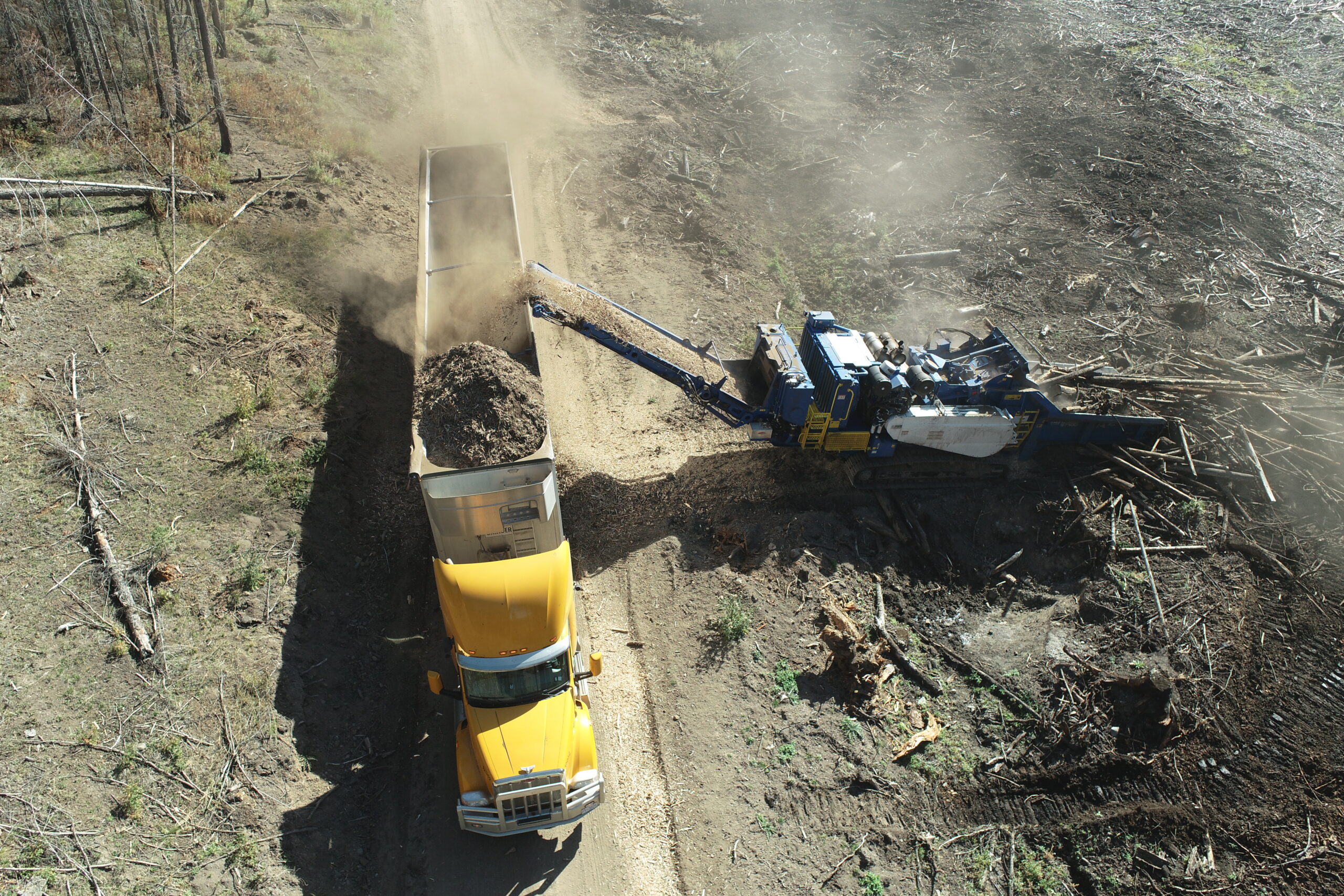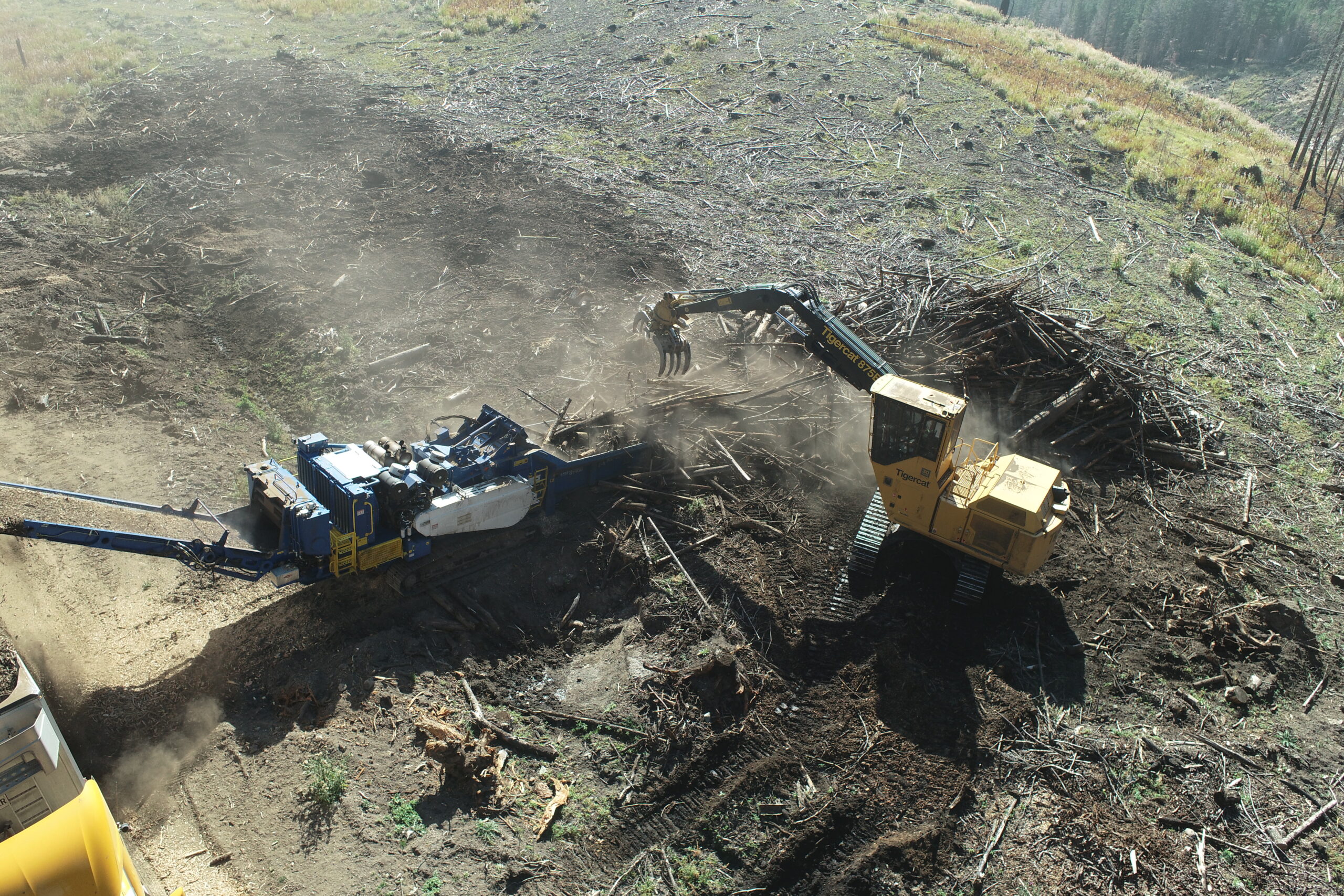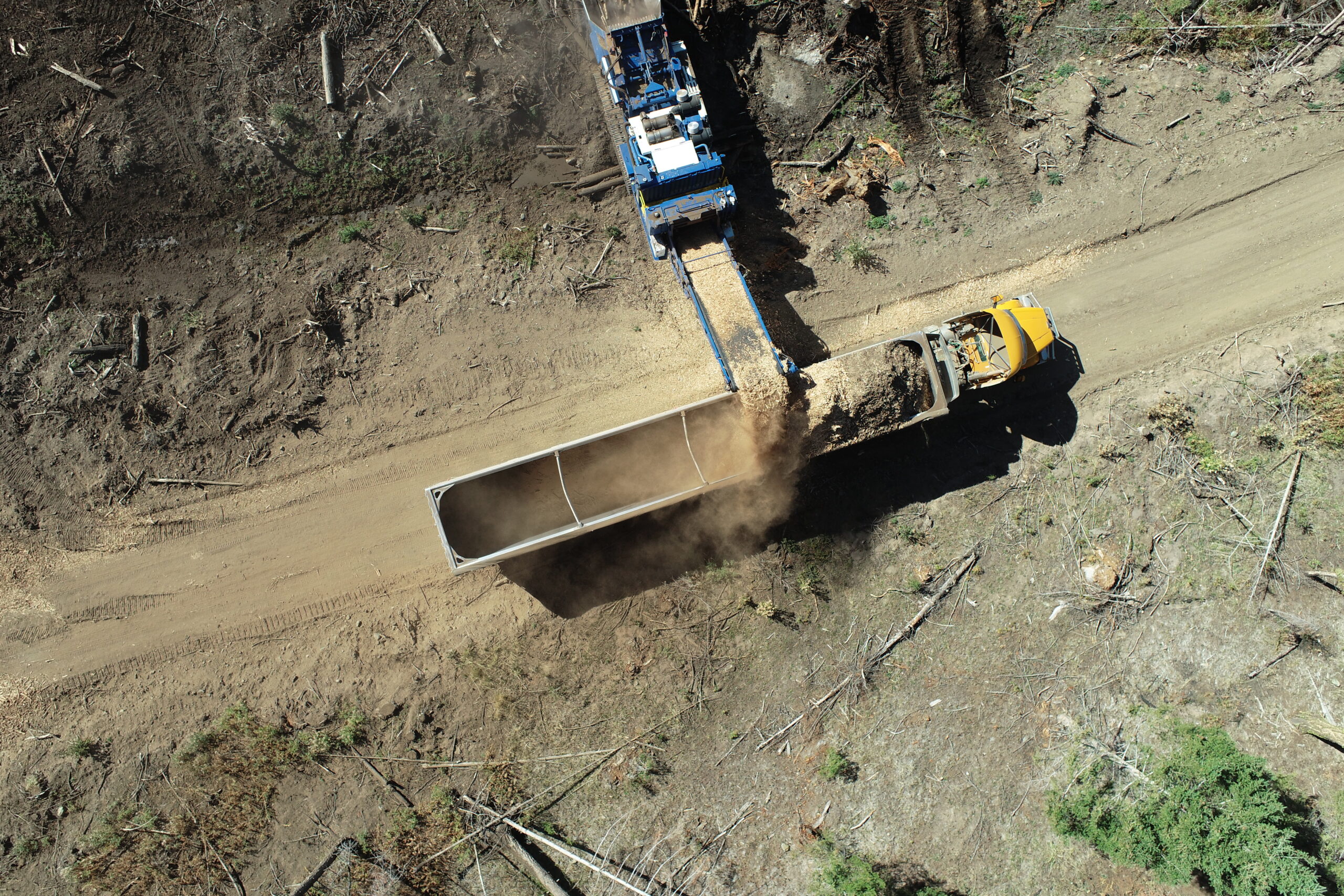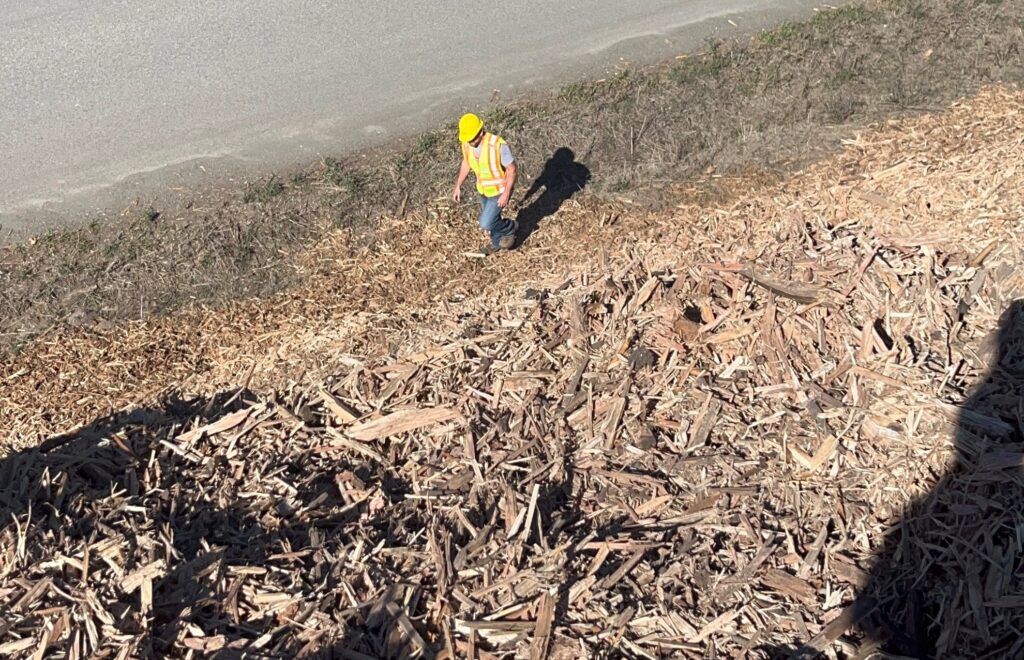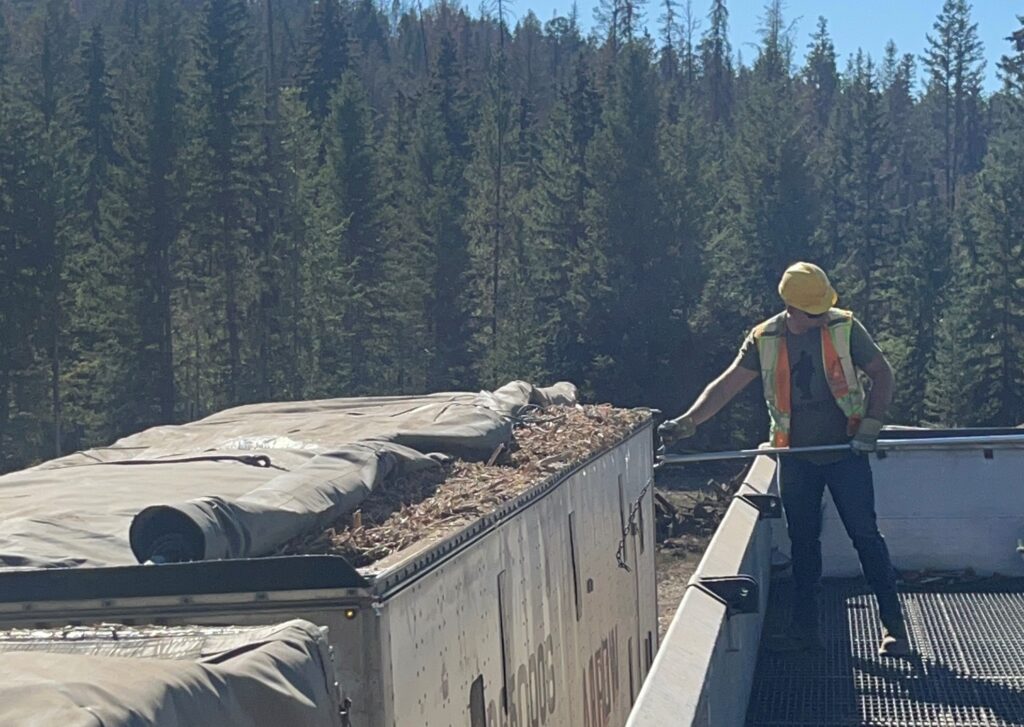Skeetchestn Indian Band and Industry Partners Working Together
Kamloops, B.C. – Within the vast landscape of British Columbia, an Interior First Nation is taking the lead to demonstrate the importance of forest rehabilitation and utilization aligned with First Nation values at the forefront. The Skeetchestn Indian Band (SIB), through Skeetchestn Natural Resources Corporation (SNRC), is taking the lead to deliver on sustainable forestry practices with a practical approach to the enhanced utilization of low-value wood waste. In a collaborative effort with funding support from the Forest Enhancement Society of BC (FESBC) and operations expertise by Arrow Transportation Systems Inc. (Arrow), SNRC is showing the forestry sector the value of using every part of the tree in its operations.
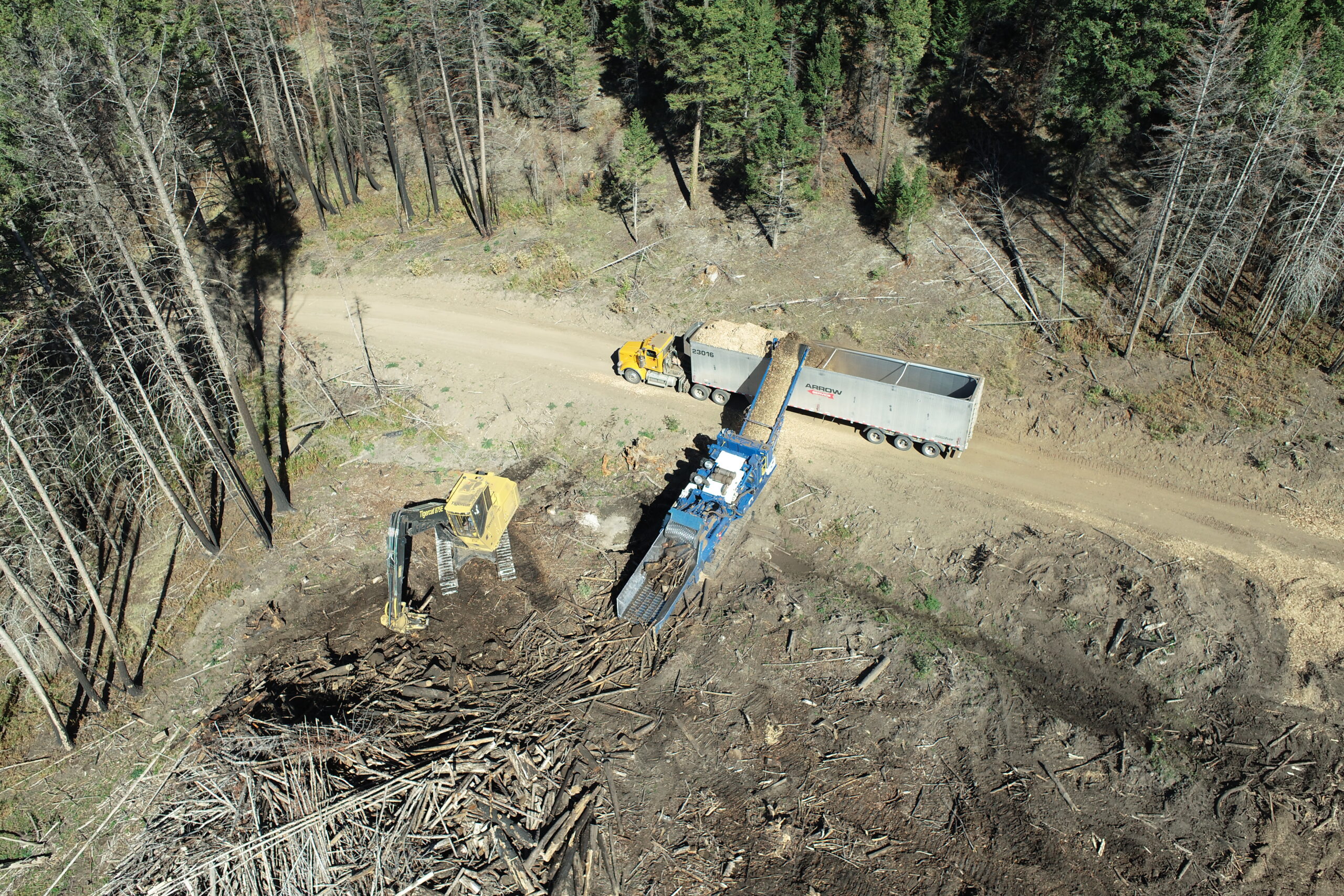
Kúkpi7 Darrell Draney of the Skeetchestn Indian Band noted how the project aligns with the values of Indigenous Peoples. “For thousands of years, First Nations sought to discover ways to live with the land as equals. Skeetchestn sees this project as a successful way to uphold this long-held practice. We’ve always known and acknowledged that our relationship with the land is reciprocal. This land does not belong to us – we belong to the land.”
The SNRC-led project showcases a practical solution for the economic utilization of slash piles typically left after harvesting and burned. As a part of this project, Arrow successfully ground over 25,000 cubic metres of fire-affected wood, which is equivalent to over 450 truckloads of wood fibre, working closely with First Nation members, local woodlot owners, and ranchers to ensure project success.
“I applaud the Skeetchestn Indian Band, Skeetchestn Natural Resources Corporation, and the Forest Enhancement Society of BC for their leadership in reducing forest waste in B.C.’s forests,” said Bruce Ralston, Minster of Forests. “Projects like this help conserve vital ecosystems, increase wildfire resilience, lower greenhouse gas emissions, while supporting the people and businesses that make up this vital and thriving community.”
According to Greg Kilba, Division Manager with Arrow, the collaboration with the SNRC, Kruger, woodlot owners, local ranchers, government entities, industry partners, and FESBC has proven necessary to ensure projects of this nature are economically viable. The collective effort has not only generated well-paying employment opportunities for local people but has also established a more sustainable source of green energy by repurposing the slash piles.
“The convergence of these diverse collaborators with a shared objective to optimize the utilization of waste wood has fundamentally changed how forest managers look at slash piles, emphasizing a more resourceful approach,” noted Kilba, adding that Arrow’s values are closely aligned with those of SIB to foster a relationship built on shared principles of environmental stewardship, sustainable resource management, and community well-being.
Kilba also noted that both Arrow and the SNRC prioritize responsible forest practices, recognizing the importance of preserving ecosystems and respecting Indigenous values.
“The alignment of these values establishes a strong foundation for collaboration, ensuring Arrow’s operations are conducted in harmony with the Skeetchestn Indian Band’s cultural and environmental priorities. The funding provided by FESBC plays a crucial role in helping facilitate this alignment. By supporting projects that prioritize sustainable forestry, wildlife habitat restoration, and reduce wildfire risk, FESBC funding has enabled both Arrow and the Skeetchestn Indian Band to work together effectively, promoting shared values and contributing to the overall ecological health of the region.”
Bringing the project together was not without its challenges, noted Mike Anderson, advisor and negotiator for SNRC. The SIB has advocated for years, insisting that the wood ‘waste’ be fully utilized. Their persistence was rewarded when the Provincial government agreed to help support the needs of the pulpwood industry, ensuring they were in alignment with the government’s legislation and policy around waste removal.
Gord Pratt, FESBC’s senior manager, said, “This project is proudly supported by FESBC. With Skeetchestn Natural Resources Corporation working collaboratively with Arrow and Kruger, we are seeing multiple benefits, including increased fibre utilization and improved wildlife habitat, resulting in healthier forest stands for everyone who values our forests across B.C.”
The SIB sees the project and its success as important for a couple of reasons. First, they don’t want to see wood fibre within their territory wasted or contributing to air pollution by being burned. Second, they are of the belief that if a tree is harvested, it should be fully utilized either on-site as a sawlog and wood chips or remain in the forest to contribute to wildlife habitat and soil-building processes. Skeetchestn band members recognize trees as their relatives, and as such, it is disrespectful to not utilize the full tree.
“There is still work to be done to help us more quickly and efficiently facilitate the utilization of wood fibre in our Territory,” said Anderson. “This project is a good start.”
“This whole operation was thought to be economically infeasible until FESBC got involved. However, once FESBC came to the table with their resources, we were able to make the project move ahead, and we ended up utilizing a lot of otherwise waste material,” said Anderson. “We are pleased to see something that was originally thought to be infeasible work out quite well for everyone involved, and we have respectfully utilized the bulk of all the trees that were sacrificed.”
FESBC would like to gratefully acknowledge the financial support of the Province of British Columbia through the Ministry of Forests.

